Table of Contents Show
We love camping in remote and hard-to-reach spots. We were pleased to discover that many Canadians are equally as passionate. However, they take it to the next level and go random camping throughout Alberta and the other Canadian provinces and territories.
No matter how much you enjoy it, the legalities can be tricky to understand. However, to stay on the right side of the law, you must get familiar with them.
Today, we’re sharing about this style of camping, its legalities, and some tips to help you enjoy it. Let’s get started!
What Is Random Camping?
What Canadians call ‘random camping’ we typically refer to as dispersed camping.
It involves setting up a campsite in a remote location, typically on public lands like national parks, forests, and wilderness areas. There are often restrictions for where camping can occur, such as away from trails, roads, or water sources.
Campers don’t have the luxury of picnic tables, fire rings, and restrooms. They usually use tents, hammocks, or other temporary structures for their living quarters. Some people do this for an overnight trip, but some survivalists can go for extended periods.
Where Is Alberta?
Alberta is one of 10 Canadian provinces. It lies in the country’s western portion and sits directly north of Montana and North Dakota. The landscape varies with the Rocky Mountains in the west, prairies in the center, and lush forests in the north.
Millions of tourists flock to Alberta each year to visit Banff, Jasper, and Waterton Lakes National Parks.
As a result of its incredible landscapes, it’s no wonder that hiking, skiing, and fishing are some of the most popular activities. The entire province is a dream destination for those who love spending time outdoors.

Is Random Camping Legal in Alberta?
Unfortunately, the legalities of random camping in Alberta can be confusing. Like boondocking or dispersed camping here in the States, some locations allow random camping, and some don’t. Familiarize yourself with the legalities of where you want to camp.
This is one of those instances where it’s best to go straight to the source for the information. Alberta Parks states, “Random camping is permitted in wildland provincial parks with some restrictions and recommendations.” They list various rules about distances from camping facilities and other features.
They also state, “Random camping is NOT PERMITTED in provincial parks and provincial recreation areas.” So random camping is technically legal in Alberta, Canada, but with some restrictions on where you can and can’t do it.
When Is the Best Time to Go Camping in Alberta
Camping season in Alberta typically runs from April through October. However, temperatures and weather conditions can be very unpredictable, especially during the spring and fall. Typically, June through August is the best time to go camping in Alberta.
Temperatures during the summer tend to stay between 59 and 77 degrees Fahrenheit. This makes it easy to enjoy outdoor activities like hiking, fishing, and wildlife.
While it is summer, you’ll still want to prepare for cooler temperatures. So bring plenty of warm clothes to stay comfortable throughout your trip.
Tips for Random Camping in Alberta
You can do several things to help you have a fantastic time. Let’s look at some tips for random camping in Alberta.
Know the Rules
As with almost anything, it’s essential that you check the rules and regulations. These aren’t situations where ignorance is bliss. Just because you’re ignorant of a law or regulation doesn’t exempt you from the consequences.
Take the time to familiarize yourself with the policies enforced by Alberta Parks. This can help you know where to camp, what campfires you can use, and the requirements for garbage disposal.
Pro Tip: Before boondocking for the first time, you need to know these Dry Camping and Boondocking Tips For an Effortless Trip
Choose Your Site Wisely
Unfortunately, you can’t just pitch your tent anywhere you want. There are many rules about where you can and can’t set up when random camping. If you’re not careful, you could camp in an unapproved area.
Additionally, don’t forget about your safety. Camping under trees during severe weather or in areas with frequent bear activity is incredibly dangerous. A canvas tent won’t provide you with much protection.
Pack Essential Gear
This type of camping will require you to carry everything you’ll need for the duration of your trip. This means you’ll need a way to transport your tent, sleeping gear, cooking equipment, and other items. Camping with a friend or two can help lighten the load since you won’t need duplicates of everything.
Don’t overlook essential items like a first aid kit, sunscreen, and insect repellent. Once you hit the trail, you won’t have a Walmart nearby. The longer your trip, the more supplies and equipment you must bring.
Leave No Trace
No matter the camping style, it’s vital that you follow Leave No Trace practices.
This means at the end of your trip, the campsite and trail should look exactly how you found it. You’re responsible for disposing of your trash correctly and ensuring you don’t leave anything behind.
You also want to avoid damaging vegetation. Not following Leave No Trace practices is one of the biggest reasons officials create rules and regulations. If you don’t camp responsibly, you could ruin it for anyone wanting to camp in the future.
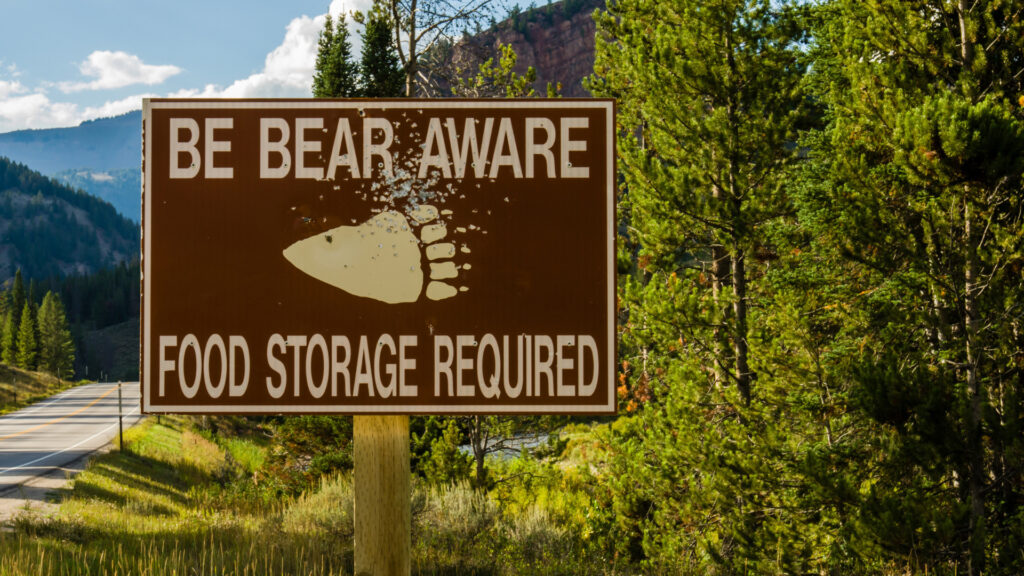
Prepare for Wildlife
Alberta is home to various dangerous animals; you must prepare for them.
Bears, cougars, wolves, moose, and bison are just a few that call the province home. While dangerous encounters are rare, they do occur. Recently, an oil worker spent time in the hospital due to a bear attack.
Do yourself a favor and take the time to research the specific wildlife living where you plan to camp. This will likely dictate what you bring and how you conduct yourself.
Store food properly, use bear-resistant products, and carry bear spray. If your camp area has bear canisters available, use them.
Dispose of waste properly to avoid attracting dangerous wildlife to your campsite. Clean up any messes or food scraps to minimize odors, which can attract curious wildlife. It also doesn’t hurt to make noise while hiking and exploring the wilderness. This can help you avoid accidentally surprising any wildlife.
Keep in Mind: While in Canada, make a pitstop into a local town and try Canadian cheddar! Click to see What Makes Canadian Cheddar Different!
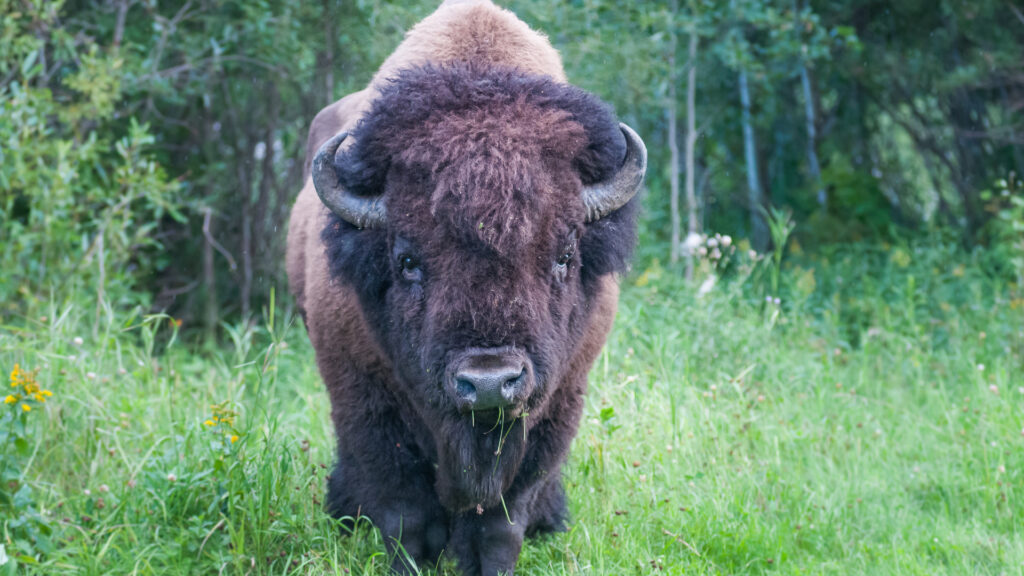
Be Aware of Fire Regulations
Fire regulations are constantly changing, especially during summer. Some areas can experience severe droughts and become very dry. When this occurs, fire bans are common.
If your trip occurs during a fire ban, you’ll need a plan for preparing meals and potentially staying warm.
While we never encourage anyone to break the law, fire regulations are laws you especially don’t want to break. The fines are costly, and the potential risks aren’t worth it.
Wildfires can get out of hand very quickly during dry conditions and do a tremendous amount of damage. This displaces wildlife and destroys the landscapes.
Respect Others
The last tip we have for you is to respect others. Anyone heading out to a remote area will likely want their space and privacy.
When setting up camp or picking a spot, do whatever you can to respect anyone else enjoying the area. Stay away from their campsite and keep the noise to a minimum, especially at night.
If everyone followed the golden rule and treated others how they wished to be treated, the world would be a better place.
Unfortunately, not everyone does this, but you can be responsible for how you treat others. So respect your adventurers and help them have a remarkable experience.
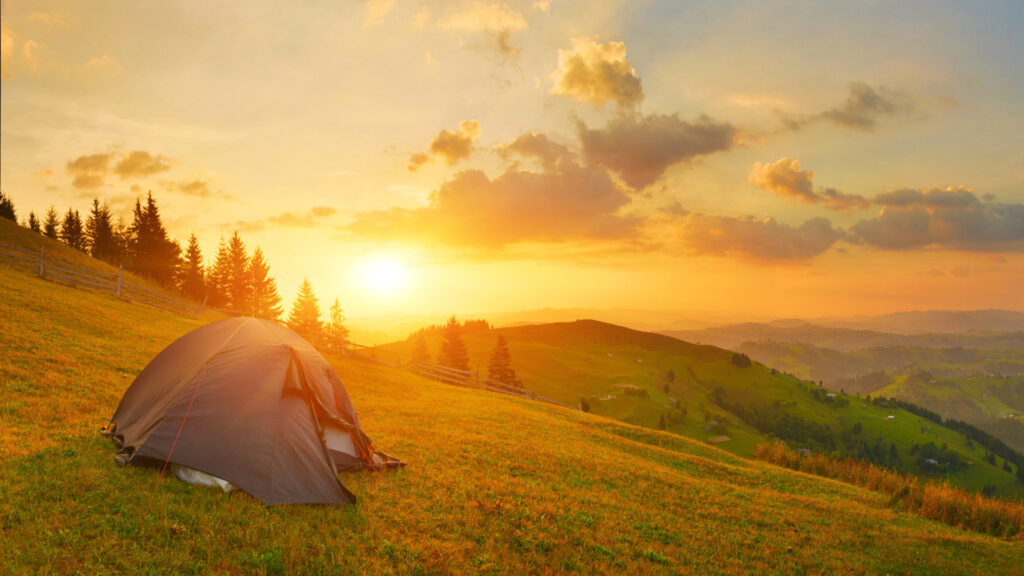
Discover the Magic of Random Camping in Alberta
Random camping can be a fantastic way to enjoy nature and disconnect from the rest of the world.
Alberta and its incredible landscapes make it an ideal place for those who love to random camp. If you take the proper precautions and prepare appropriately, you can have an adventure of a lifetime.
Have you ever visited Alberta? Maybe it’s time for a trip up north.




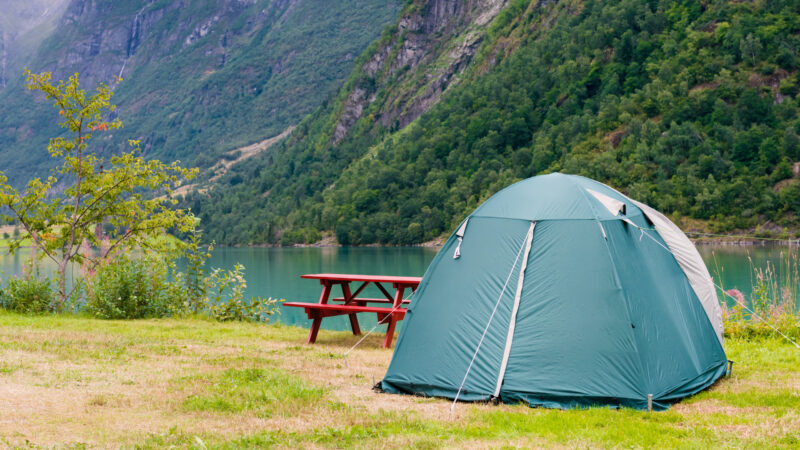
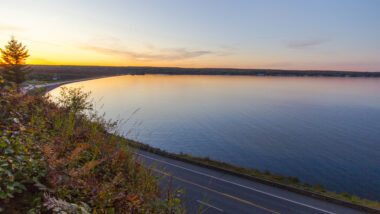
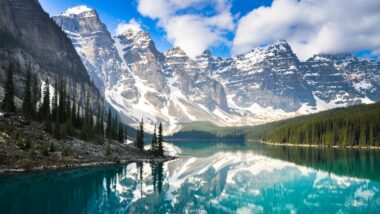
Anywhere west ern alberta n the foothills on Crown Land is legal for free range camping, pick up a permit though